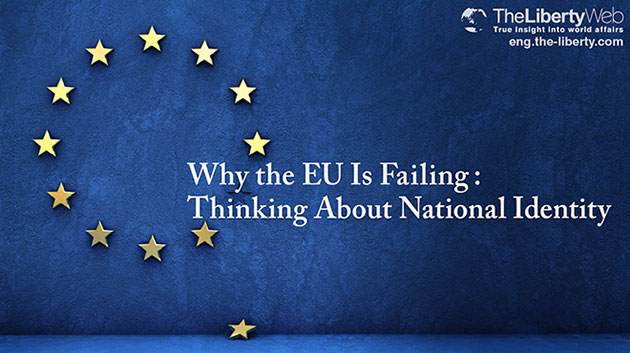Why the EU Is Failing: Thinking About National Identity
This year will see important elections in three of Europe’s central countries: the 15 March general election in the Netherlands, the French presidential elections in April, and the German federal election in September. We can speculate that the pivotal debate will be about whether each country should remain in the EU.
Problems with the EU were brought to the surface when Britain voted to withdraw in June 2016. Studies suggest that already 50% of France and Germany are against the EU. It is without a doubt that the EU has serious problems.
Let us look at what problems the EU has, and what patriotism is, through a study of Brexit advocate David Miller’s book “On Nationality”.
Countries Aren’t Formed by Economic Ties Only
The state is thought to be fulfilling its function as long as it protects the interests of the state and its people. In his book, Miller questions this idea.
If the statement were true, the EU’s idea of invading each state’s sovereignty to an extent to achieve economic integration would be perfectly reasonable.
But Miller explains what actually happens in reality. He says that ideologists who advocate Europe try to create a western national identity based upon common cultural background, but in reality very few Europeans would be happy to put this collective identity above their own traditional national identity. The people make a utilitarian interpretation of the union, and don’t hold any awareness of being ‘Europeans’.
In other words, no person in Europe would hold the same patriotism they have for their country, towards Europe as a whole.
According to studies on the countries in the EU most people answered ‘No’ to the question “Will you be okay with increasing your tax burden to help another country in the EU suffering economic difficulties?”
It is clear that the EU is not a union that can guarantee even a limited safety net for its members, and will never function like one big state.
Those who proposed to establish the EU thought it would succeed because they saw states as no more than a utilitarian economic body that could be strung together. But the EU and its flaws have revealed that what makes the state a state is much more than just utilitarianism.
The State and “Public”
Miller says that what makes up the state is its common public culture. If people lived just to stop themselves from going hungry, they are no different than animals. This goes back to Aristotle and Hannah Arendt’s idea that humans attain happiness through public activity and public contribution.
State constitutions define this concept as the “sovereignty of the people”. But inside the EU this is lost.
The common rule in the EU is legislated by a committee the members who are not selected by public election. Sovereignty of the people comes hand-in-hand with legislative rights, but in the EU individual states have no legislative rights.
The simplest form of public culture is ‘protecting your country’.
It is hard to think that a EU representative would pay his or her respects to someone who died for its sake as Trump acknowledged the SEAL who died in service in Yemen in his address to Congress.
The people in the EU don’t want to help other member countries suffering from economic problems; how could we expect them to protect the EU with their very lives?
In ancient times, national defense was the sanctified act of protecting one’s sacred land. It is understandable that no one would risk his or her lives to protect the man-made EU.
Religion at the Base of Patriotism and National Union
Miller also explains the importance of religion in creating national identity. He rightly declares that the separation of church and state does not give us an excuse to avoid the question of religion.
President Trump has nominated Neil Gorsuch to the Supreme Court. Gorsuch is a long-time advocate of the abolition of the church-state separation. Trump has issued an executive order against the Catholic sin of abolition, and for the abolition of the Johnson Amendment.
Trump is moving in the direction of amending the policy separating church and state in order to return to the ideal of the Founding Fathers and revitalize patriotism in his country.
Both the U.S. and Europe are trying to steer back into nationalism.
Japan too is seeing much debate to solve the problem of the Emperor’s step-down and return the Emperor to his former religious role.
It is the beginning of a global trend towards the age of greater patriotism.
(Hanako Cho)



















